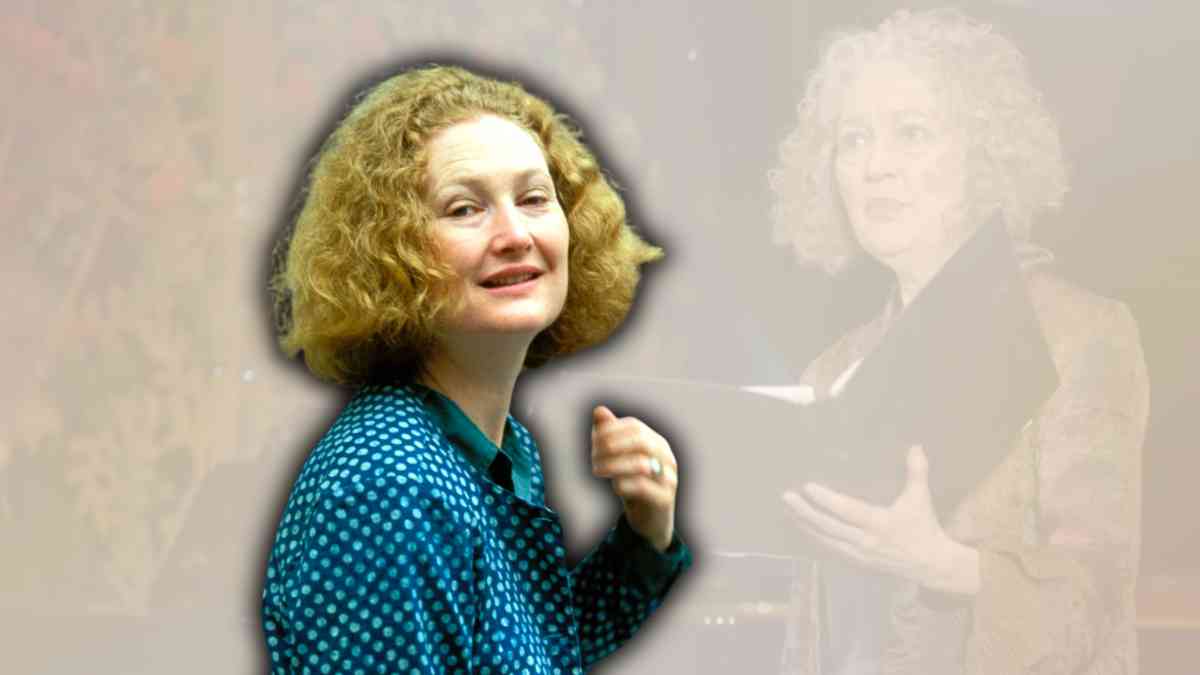Dame Emma Kirkby: A Voice That Revolutionized Early Music

Dame Emma Kirkby is a name synonymous with excellence in early music. Revered for her angelic soprano voice, she is considered one of the most influential figures in the revival of Baroque, Renaissance, and Medieval vocal performance. Unlike many opera singers who command grand stages with theatrical bravado, Kirkby built her legacy through purity, precision, and a commitment to historically informed performance.
Early Life and Academic Roots
Born on February 26, 1949, in Camberley, Surrey, Emma Kirkby did not initially train to become a professional singer. Her journey began not in a conservatory but in the classical halls of Oxford University, where she studied Classics at Somerville College. Her academic foundation in ancient languages and literature would later enrich her deep understanding of historical texts in music.
During her time at Oxford, she sang with various choirs and developed a passion for ensemble performance. These experiences exposed her to early music repertoire, laying the groundwork for her future career. What makes her story remarkable is that she was largely self-taught and initially pursued a career as a schoolteacher. However, her unique voice and growing involvement in amateur music circles began to attract attention.
Breaking Ground in Early Music Performance
In the 1970s, a growing movement emerged to revive early music using period instruments and techniques that reflected the intentions of original composers. This movement, known as historically informed performance, sought authenticity over modern romanticization. Dame Emma Kirkby emerged as one of its most important voices.
Unlike many of her contemporaries who leaned toward vibrato-rich operatic singing, Kirkby offered a clean, straight-toned sound that mirrored vocal practices of the 16th to 18th centuries. This stylistic difference, combined with her scholarly approach to music, made her a favorite among early music specialists.
Her collaboration with lutenist Anthony Rooley and his ensemble, The Consort of Musicke, helped her gain international recognition. The group specialized in Renaissance and early Baroque music, and Kirkby’s clear soprano tone was perfectly suited for the delicate textures of this repertoire.
A Prolific Recording Artist
Dame Emma Kirkby’s discography is extensive, with more than 100 recordings to her name. Her interpretations of composers like Johann Sebastian Bach, George Frideric Handel, Claudio Monteverdi, and John Dowland are considered reference points in classical music.
Among her most celebrated recordings are:
-
Handel’s “Messiah” with Christopher Hogwood and the Academy of Ancient Music — a landmark recording in the period performance movement.
-
Monteverdi’s “Vespers of 1610” — praised for its blend of spiritual expression and vocal discipline.
-
Bach’s “Mass in B Minor” — where her voice brings an ethereal quality to one of classical music’s grandest masterpieces.
-
Dowland’s Lute Songs with Anthony Rooley — demonstrating her deep sensitivity to text and phrasing.
These recordings were not just artistically accomplished; they helped bring early music to mainstream audiences around the world.
Voice and Vocal Style
What sets Dame Emma Kirkby apart is her voice—light, agile, and seemingly untouched by operatic excess. She uses very little vibrato, allowing the natural beauty of the music and its harmonies to shine. This clarity makes it easier to hear the interplay between voice and instruments in Baroque ensembles.
Critics often describe her singing as “otherworldly,” “pure,” and “authentic.” Yet, despite her technical mastery, she never sacrifices emotion. Instead, she brings intensity through phrasing, breath control, and an intimate connection to the text.
Her vocal style is not just a matter of aesthetic preference but a result of her understanding of historical technique. By studying original manuscripts, treatises, and period instruments, Kirkby ensures that every note she sings respects the music’s original context.
Collaborations and Ensembles
Throughout her career, Dame Emma Kirkby has worked with many pioneering ensembles in the early music world. Some of the most notable include:
-
The Consort of Musicke – Her earliest and most formative collaboration.
-
The Academy of Ancient Music – With Christopher Hogwood, she helped redefine how Baroque music is interpreted.
-
The Orchestra of the Age of Enlightenment – Another critical force in the period music scene.
-
London Baroque, Taverner Consort, and The Parley of Instruments – All of which contributed to her standing as a leading soprano in early music.
These collaborations not only enriched her career but also elevated the profile of historically informed performance worldwide.
Recognition and Awards
Dame Emma Kirkby’s contributions have been widely recognized. She was made a Dame Commander of the Order of the British Empire (DBE) in 2007 for her services to music, a rare honor for a non-operatic classical singer. Her other accolades include:
-
Gramophone Magazine Artist of the Year (1999)
-
Honorary Doctorates from Oxford University, the University of York, and several international institutions
-
Classic FM Hall of Fame inductee
-
Early Music America Lifetime Achievement Award
These honors reflect not only her artistic excellence but also her influence in music education and historical scholarship.
Educator and Mentor
Beyond performance, Dame Emma Kirkby is a dedicated teacher and mentor. She has taught at institutions such as the Guildhall School of Music and Drama, and continues to give masterclasses worldwide.
Her teaching style reflects her artistry—gentle, precise, and deeply rooted in musical and textual analysis. Many of today’s prominent early music vocalists credit her as an inspiration and guide.
By nurturing new generations of singers, she ensures the ongoing relevance and vitality of early music.
Personal Life and Philosophy
Dame Emma Kirkby has always maintained a humble and private personal life. She was formerly in a long-term relationship with Anthony Rooley, and they have a son together. Despite her fame, she has never courted celebrity. Instead, she prefers to focus on the music itself, often citing the joy of discovery and ensemble collaboration as her greatest motivations.
She views music as a shared journey—one that requires respect for the past and open-mindedness in the present. Her philosophy centers on authenticity, scholarship, and emotional connection, values that define her every performance.
Legacy and Lasting Impact
Few singers have reshaped a genre as profoundly as Dame Emma Kirkby. Through her voice and vision, she made early music accessible, relevant, and emotionally compelling to modern audiences. Her work has inspired:
-
Musicians to embrace historical practices.
-
Audiences to appreciate the subtleties of pre-Classical music.
-
Institutions to support early music programs and research.
Her legacy is preserved not just in recordings, but in the living traditions she helped foster.
Conclusion
Dame Emma Kirkby stands as a beacon of artistic integrity, scholarly excellence, and musical passion. Her pioneering work in early music has opened doors for countless artists and continues to resonate across the classical music world.
In a time when grandeur often overshadows nuance, her voice reminds us that simplicity, when grounded in authenticity, can be the most powerful expression of all.



